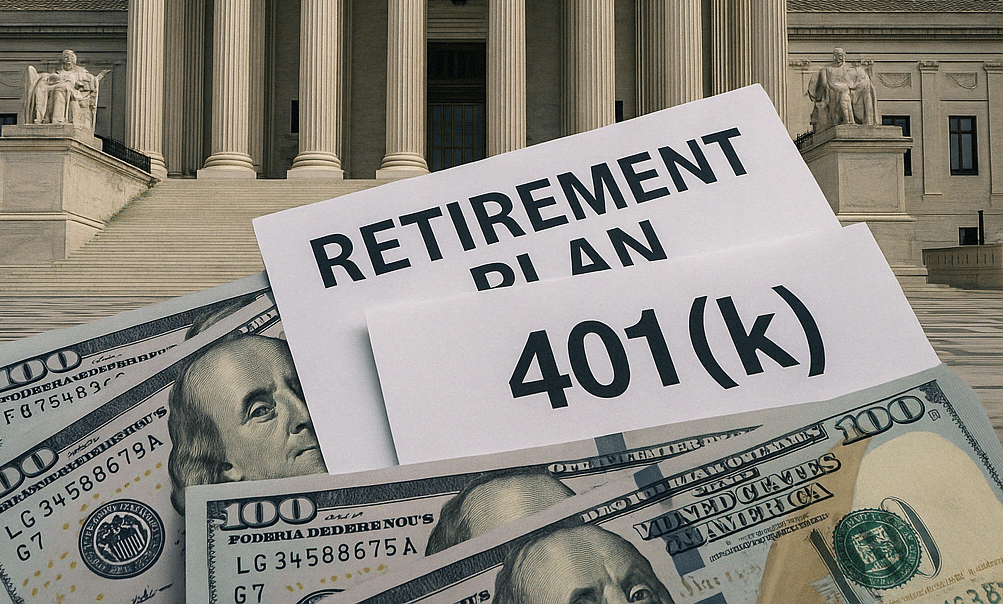The U.S. Supreme Court delivered a major win to retirement plan participants on April 17, 2025, ruling unanimously in Cunningham v. Cornell University that workers don’t need to anticipate and disprove exemptions when alleging fiduciary misconduct under the Employee Retirement Income Security Act (ERISA).

The decision reverses a lower court’s dismissal of a lawsuit brought by Cornell University employees, who claimed their 401(k)-style retirement plans paid excessive fees to outside investment firms. The workers argued the university violated ERISA by engaging in prohibited transactions with “parties in interest” — a category that includes recordkeepers like TIAA and Fidelity Investments.
The Legal Question: What Do Workers Have to Prove?
At issue was whether retirement plan participants must also plead that no ERISA exemptions apply — such as when a service is necessary and reasonably priced — to survive a motion to dismiss.
The Second Circuit Court of Appeals had ruled that workers needed to allege not just the prohibited transaction, but also that no exemption (like reasonable service fees) applied. That higher bar made it easier for defendants to get lawsuits thrown out early.
But the Supreme Court rejected that interpretation.
“To state a claim, plaintiffs need only plausibly allege the elements of the statute itself,” wrote Justice Sonia Sotomayor, delivering the unanimous opinion. “They are not required to disprove every possible exemption.”
The Court clarified that ERISA’s exemptions (Section 1108) are affirmative defenses, meaning employers and plan fiduciaries bear the burden of raising them later in litigation — not plaintiffs at the outset.
Why This Matters to 401(k) Participants
The ruling lowers the legal hurdle for retirement plan participants suing over excessive fees, conflicts of interest, or transactions with service providers.
It could:
- Encourage more lawsuits against universities, nonprofits, and private employers
- Push fiduciaries to be more cautious in vendor selection and fee negotiation
- Empower employees to challenge questionable plan expenses more easily
In this case, the plaintiffs alleged Cornell’s retirement plans paid $115 to $200 per participant per year for recordkeeping services — far above industry benchmarks of $35 per person, according to the complaint.
What’s Next?
The case now heads back to federal court in New York, where the plaintiffs will be allowed to proceed with their claims against Cornell and the plan’s fiduciaries. The university will have a chance to present evidence showing that its contracts with TIAA and Fidelity were necessary and involved only reasonable compensation, which could qualify them for exemption under ERISA.
Justice Alito, joined by Justices Thomas and Kavanaugh, wrote a concurring opinion warning that the ruling could unleash an “avalanche” of costly litigation — even when plans acted in good faith.
Still, the majority stood firm that “Congress set the balance,” and that fiduciaries bear the responsibility of proving exemptions.
Bottom Line
The Supreme Court’s ruling in Cunningham v. Cornell shifts the balance of ERISA litigation in favor of workers. Going forward, retirement plan participants will face a lower burden when raising claims of excessive fees or prohibited transactions — a move that could have ripple effects across the $8 trillion U.S. 401(k) system.
